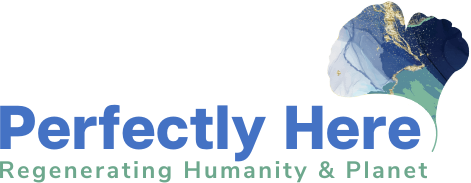My Dear Reader,
‘It’s not easy to be a human,’ is what I’ve been saying in the past few years. Do you know how I know?
Because I see how easy it is to get tangled up in assumptions, believe things that are not true, and make choices based on feelings, and biases.
Then get into arguments, feel awful, and go around and around in the same manner, judge ourselves, judge others, and become bewildered when others don’t do the “right” thing.
With all the changes we experience in life, it is hard to remain objective and see beyond one’s perspective. This is the human dilemma, regardless of our background, roles, or identities.
All of this is due to deficient or inadequate human development.
 Thankfully, researchers and founders of The Inner Development Goals have set out to provide an open source for finding the answer to one question,
Thankfully, researchers and founders of The Inner Development Goals have set out to provide an open source for finding the answer to one question,
What qualities, abilities, or skills do we need to develop to build a sustainable future for people and the planet?
As a Human Cognitive and Behavioralist, I’ve offered a couple of answers to the one survey question: see below
1. What qualities, abilities, or skills do we need to develop to build a sustainable future for people and the planet?
- Please write ONE quality, ability, or skill under suggestion.
- We ask you to suggest up to 10 individual or collective skills.
- Feel free to explain your suggestions with short comments.
Suggestion: Understanding that our thoughts are not truths.
Comment: We as humans need to make assumptions, interpretations, and conclusions to make choices in life and act upon them. However, brain science shows that our brains come with various biases that help with the efficiency of energy, such as Truth and Confirmation biases. See Amishi Jah, Neuroscientist. Unfortunately, our minds are not capable of knowing this and we take all our assumptions as facts and many of them lead to conflict, wrong direction, and personal, family, and societal challenges.
Suggestion: Heart qualities and the intelligence of the heart
Comment: Being kind, compassionate, generous, forgiving, relishing in the joy of others, and peaceful are learned feelings and behaviors. These qualities help us live harmoniously, understand others, support one another, as well as feel love and understanding and supportiveness for ourselves. Learning these qualities at a pure level is not available for every human child. Some families and cultures are unbalanced, they care too much, give too much, and neglect themselves, and it is all for the purpose of being a “good” person. Some people have some of these heart qualities developed, but not all of them. Then assumptions of not deserving kindness, compassion, generosity, forgiveness, and peacefulness get in the way of the heart. Humans need to develop these at an early age to prevent animosity at home, in schools, at work, and in society.
Suggestion: Attention and Self-Awareness
Comment: With the advances of industrialization, technology, and digitalization, human attention has consistently reduced in quality. We are less involved physically, sit at our desks longer, don’t walk to destinations, and don’t work in the fields. Our attention is less involved. We do not need to memorize as much for computers do this for us. With the loss of the need for attentiveness, self-awareness has reduced as well. Believing what we think as fact, unaware of personal agenda, and how our feelings and desires impact our choices and consequences can be minimized by improvement in our attentiveness and engagement.
We learn from each other how to be effective, kind, happy, and successful.
So, please take this one-question survey and add your insights. This is a global effort and your insights and observations matter.
Here is more information about the Inner Development Goals, their process, phases, researchers, and end results.
Thank you for your participation and

